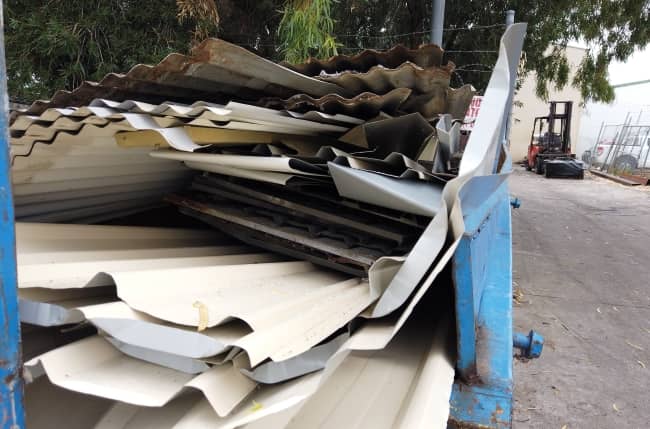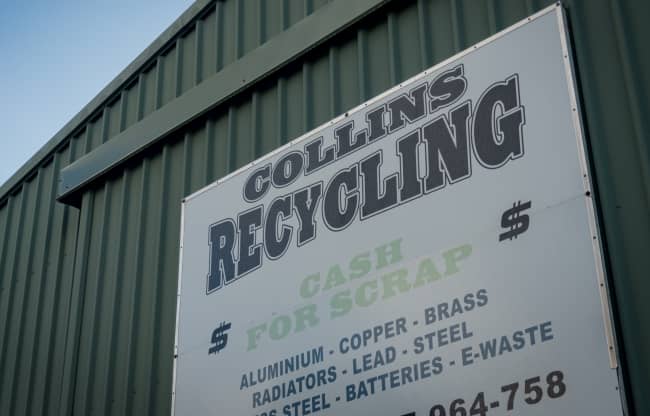The negative impact of dumping recyclable materials in landfills is well documented.
- Electronic waste breaks down into hazardous materials such as mercury, arsenic, and cadmium.
- Waste breaking down in a landfill where water filters through causes the toxic pollutant leachate, which can poison groundwater and water supplies.
- Organic material in landfills breaks down into methane gas. This greenhouse gas is flammable and about 25 times more potent than carbon dioxide, increasing climate change.
These are just a few adverse effects of not recycling. Many people do their best with paper and plastic recycling yet fall short when it comes to more significant sources of materials that are recyclable.
Lack of awareness is one of the top reasons people’s best efforts do not come close to fixing the problem of recycling scrap metal. People will occasionally ask, “Why should we recycle scrap metal?” Here are five good reasons to motivate your recycling.
Why Should We Recycle Scrap Metal?
1. To Help Offset Your Company’s Carbon Emissions
Even a business dedicated to reducing its carbon footprint contributes to pollution over time. When your company recycles metals, it is helping to reduce emissions and air pollution. Choosing to recycle your scrap metal rather than send it to a landfill is a hugely positive step. When you take advantage of this environmentally friendly alternative to landfills, you show your colleagues and clients that taking care of the planet matters to you.
2. Help Continue the Cycle of Endless Recycling
Metal is one type of recyclable product that can go through endless cycles and keep its original properties and retain its usefulness. This is a substantial environmental plus. Creating virgin metal takes many steps, including,
- Extracting ore
- Purifying it
- Shaping the ore
- Transport the metal
Opting to repurpose existing metals is exceptionally energy efficient. Recycling aluminium requires 95% less energy than creating more, and copper needs 90% less energy to recycle.
If enough of the metal existing in the world today were to be recycled and reused, in theory, there could eventually be no need to make new metals.
3. Preserve Natural Resources
Consumers are becoming more interested in the ways businesses protect (or fail to protect) the natural resources on the planet. Additionally, they are voicing their agreement or displeasure by using their purchasing power, backing brands that do a good job recycling and vocally opposing those who do not appear to be firmly on the side of protecting the environment.
Mining is especially harmful to the earth, and recycling scrap metal is one of the best ways to limit mining. New resources do not need to be taken from the earth if metals can be repurposed to create the products we use.
4. To Meet Industry Standards
Businesses are under increasing pressure to lower their carbon footprint and recycle as much as possible. Various industries are tightening their standards to ensure companies will comply. If you have excess scrap metal, recycling it creates a win-win situation.
5. You Benefit Directly by Earning Cash
Not everyone knows that recycling scrap metal can be a rather lucrative side job. The process is not difficult, and many ambitious people make a good bit of money while helping the environment.
Take your metals to a recycling facility and follow the guidelines for recycling scrap metal. Most facilities ask that your metal is sorted in bins when you arrive. Occasionally, a facility will sort through your metal, but that is becoming less common. After sorting, your metals are weighed, and you get paid for the items you bring.
How much you get depends on the metal type, total weight, and general condition of the metal. When you recycle, you also help give the economy a boost by creating more jobs in the scrap metal recycling industry.
If you have questions about recycling scrap metals or need information about what materials you can bring to us, feel free to contact Collins Recycling. We can explain our process, so your visit will be fast. Our staff have years of experience working with recyclables and can assist you with planning your drop-off.









